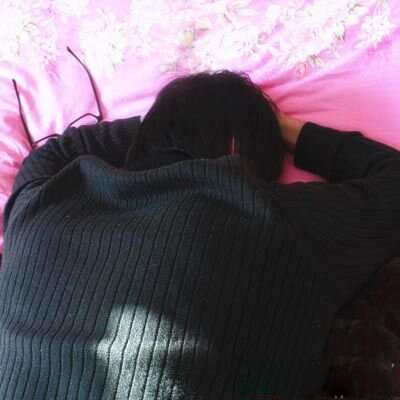The importance of sleep time and what are the dangers of insufficient sleep time
CEditor Posted by 2024-03-12 08:41:11
The importance of sleep to us is naturally self-evident, so do you know the importance of sleep time and the harm that lack of sleep can have on us? Let’s learn about sleep-related matters with the editor. You must arrange your work and rest time reasonably, otherwise your body will not be able to bear it. Start reading now. Table of contents 1. The importance of sleep time 2. The dangers of insufficient sleep time 3. How to control sleep time 4. The benefits of adequate sleep time 5. Best sleep time for different age groups 6. Sleep time for 2-month-old babies 7. Sleep time for the elderly 8. How to determine scientific sleep time The importance of sleep time In life, about 1/3 of the time is spent in sleep. However, there are very few people who truly understand the importance of sleep and the scientific way of sleeping and maintaining health . Sleep is an important physiological phenomenon. After a stressful day of work and study, people are in a state of high fatigue, both mentally and physically. Only reasonable and scientific sleep can put all the cells in the body into a state of relaxation and rest, especially the nerve cells in the brain. Therefore, sleep has become the best way to rest to normalize the body's energy and physical fatigue. Therefore, the important physiological function of sleep is to process the various information that people accumulate throughout the day. In fact, human sleep is a very complex physiological process and has a certain periodicity, generally consisting of 4 to 5 cycles. Judging from the electroencephalogram, each cycle begins with "slow" wave sleep and ends with "fast" wave sleep. The so-called "slow" wave sleep means that the functions of the autonomic nervous system are proceeding slowly; the so-called "fast" wave sleep means that the functions of the autonomic nervous system are undergoing vigorous activity.  People's night's sleep generally starts with the "slow" wave, which lasts about 80 to 120 minutes; then, it switches to "fast" wave sleep, which lasts for about 20 to 30 minutes; and then switches to the "slow" wave. Sleep, cycle, until gradually wake up. Sleep is indeed an essential physiological process in human life activities. If a person does not get enough or too much sleep, it is very detrimental to health. Relevant literature reports point out that people who sleep less than 4 hours a day have a mortality rate that is more than 180% higher than those who sleep 7 to 8 hours a day; but if a person sleeps too long, more than 10 hours a day, this The mortality rate is also more than 80% higher. Generally speaking, the reasonable sleep time for us humans is about 10 hours a day for preschool children; school-age children should sleep 9 to 10 hours a day; young people under 20 years old can sleep about 9 hours a day; and adults should sleep 8 hours a day. Sleep is not only about adequate time, but also about sleep quality. To improve the quality of your sleep, try the following. 1. Good sleeping environment The "Nei Jing" says: "Agitation will perish, and tranquility will hide the spirit." This tells us that only when the mood is calm, it is easier to fall asleep. Excessive physical and mental activity before bed may cause insomnia . Therefore, people in middle age and old age must be open-minded. Before falling asleep, they need to eliminate selfish thoughts and focus on "sleep". This is called "sleep first". Only in this way can you sleep quickly, peacefully and soundly. . 2. Have a regular daily life We must have certain rules in our lives. Modern scientific research has also proved that there is a precise "biological clock" in the human body, which regulates the progress of human life activities at all times. Traditional Chinese medicine also advocates that different daily routines should be arranged in different seasons. For example, in spring, the daily life requires "lying at night and getting up early, walking in the courtyard"; in summer, "lying at night and getting up early, not tired of the day"; in autumn, "lying at night and getting up early, "Everything thrives with the chicken"; in winter, it is advocated to "go to bed early and get up late, and you must wait for the sun". Only by developing the habit of going to bed on time can you sleep peacefully every time it's time to go to bed. In addition, you should wash your face, brush your teeth, and rinse your mouth before going to bed. Especially washing your feet with hot water will help you sleep. Reading books and newspapers, drinking coffee , tea, smoking, etc. before going to bed can cause excitement and lead to insomnia . 3. Pay attention to moderate work and rest When a person lacks exercise and labor, it will be more difficult to fall asleep. On the contrary, when a person is too tired, it is difficult to fall asleep all at once. Therefore, one must pay attention to moderate work and rest in order to ensure a good sleep.  Especially after the elderly retire, their mental and physical activities have decreased, and they often cannot sleep deeply due to improper work and rest. This requires the elderly to do some physical activity during the day or take a walk for 20 to 30 minutes before going to bed, which can help them sleep. 4. Suitable room temperature "The Song of Longevity of the Ten Old Men" says: "Seven old men rub their giant noses, and the air flows through the windows." What the song says is to ensure fresh air during sleep. Even during the day in winter, the windows should be opened before going to bed for ventilation. However, you should pay attention to avoiding the intrusion of "draft" and "gap wind" when sleeping. In addition to the above sleep requirements, it is also necessary to create conditions for falling asleep, such as soft and warm bedding, dim indoor light at night, appropriate temperature and humidity, and keeping quiet. 5. Appropriate diet There is a sentence in the "Huangdi Neijing": "If the stomach is not in harmony, you will have trouble sleeping." Now that I think about it, this statement also makes sense. If you eat too much before going to bed, it is easy to overburden the gastrointestinal tract and affect sleep. Therefore, dinner should be as light and small as possible, and the time between dinner and falling asleep should be kept at more than two hours. If you work or watch TV for a long time at night, you can add some soft food to avoid insomnia caused by hunger. In addition, some elderly people often suffer from insomnia due to frequent urination at night. According to statistics, about 1/4 of 60-year-old people "get up at night". Therefore, the elderly need to drink less water at night and replenish water the next morning. 6. Correct sleeping position Cai Jitong of the Song Dynasty wrote in "Sleeping Secrets": "Sleep on your side with flexion." This means that you should sleep on your right side with your upper and lower limbs semi-flexed. This sleeping position has two major benefits: it does not oppress the heart; it is conducive to gastrointestinal peristalsis and helps digestion. When sleeping on your side, curl up your limbs slightly and relax your muscles, which is very beneficial to eliminating fatigue and promoting sleep. As the saying goes, "sit back and relax", but "sleep high" does not mean that the pillow is very high, but that people should be carefree. In fact, pillows that are too high or too low can affect your sleep. Generally speaking, pillows should also be of moderate firmness and softness. In addition, the pillow core can be made of vanilla, wild chrysanthemum , buckwheat bark, or dried dried tea leaves . Its softness and firmness are moderate, and its fragrance is pleasant, which helps you fall asleep. In hot weather, it is not advisable to use kapok or foam plastics with poor heat dissipation as pillow cores. For patients with high blood pressure , if you can fill your pillow with chrysanthemum and late silkworm sand, it can clear the liver, improve eyesight and treat headaches . 7. Avoid lying down for long periods of time Traditional Chinese medicine believes that "sleeping for a long time damages qi", which means that sleeping for a long time will affect the movement of human qi, resulting in disharmony between qi and blood, and even dizziness, dizziness, weakness of limbs, listlessness, loss of appetite, etc. Phenomenon. Even the elderly who suffer from chronic diseases and have been bedridden for a long time should not sleep in bed all day. They should try to move their limbs or change their lying positions. If you develop drowsiness due to prolonged lying down, you should see a specialist for a physical examination. 8. Take medication appropriately Some people say that if you have insomnia, you can take a certain amount of sleeping pills to help you sleep. In fact this method is not advisable. Long-term use of sleeping pills can easily disrupt sleep rhythm and make people drowsy during the day. Therefore, insomniacs can use a moderate amount of sleeping pills, but barbiturates that are harmful to the liver should not be used.  Eliminate body and brain fatigue Whether you are engaged in physical labor or working in an office, the human brain is always active and consumes a lot of energy. To eliminate fatigue, sleep is very necessary. To eliminate brain fatigue, more sleep is often needed than to eliminate physical fatigue. reduce stress Feeling stressed can actually be said to be a state of exhaustion in the brain. Just like someone said, "You will forget all the annoying things as soon as you sleep." Sleep can rest your tired brain, and sleep is a very effective way to relieve stress. Regular and chronic lack of sleep can slowly accumulate stress and may also lead to mental illness such as morning depression. Physical growth and development and prevention of aging Sleep is an important period for the secretion of growth hormones. During the growth and development period of teenagers, getting enough sleep is the secret to growing taller. In addition, growth hormone is also very important for adults. It plays an important role in the repair and regeneration of aging skin, wounds, and other body tissues, and fat burning. Therefore, high-quality sleep can keep you young and prevent aging. prevent disease During sleep, white blood cells and red blood cells are produced in the bone marrow, which can promote blood circulation and improve the body's resistance and immunity. Sleep can also reduce the burden on the heart and allow the heart to rest. Good sleep can produce fresh blood, secrete growth hormones that promote metabolism, etc., and prevent various diseases. Improve memory and learning efficiency During sleep, the human brain organizes the things that happened that day and the content of learning, and keeps them in the brain as memories. Especially during light sleep, various information can be organized. Light sleep generally occurs periodically after about 3 hours after going to bed, and can deepen memory. If you want to have good learning results for exams, you must maintain at least 3 hours of sleep. We often hear that if you stay up all night the day before an exam, you will not be able to give full play to your learning effect and may not achieve good learning goals. In today's busy modern society, whether children or adults, we all need to understand the importance of sleep. The dangers of not getting enough sleep Hazard 1: Can cause depression Over time, sleep deprivation and sleep disturbances can lead to the development of depression. Insomnia and depression are inextricably linked. According to a 2007 survey of 10,000 people, those with insomnia were five times more likely to develop depression than those without insomnia. In fact, insomnia is often a precursor to depression. Insomnia and depression go hand in hand. Lack of sleep can worsen depression, which in turn can make it more difficult to fall asleep. On a positive note, treating sleep problems can help relieve depression, and vice versa. Hazard 2: Accelerate skin aging Most of us have probably experienced sallow skin and puffy eyes after a few nights without sleep. But this proves that chronic sleep deprivation can lead to dull skin, wrinkles and dark circles under the eyes.  When you don't get enough sleep, your body releases more of the stress hormone cortisol. Excess cortisol breaks down collagen in your skin, the protein that keeps your skin smooth and elastic. Hazard 3: Increased risk of death British researchers observed how the sleep patterns of more than 10,000 British civil servants affected their mortality over more than two decades. The results showed that those who reduced their sleep from seven hours to five hours or less nearly doubled their risk of dying from the disease. In particular, lack of sleep can double the chance of death from cardiovascular disease. Hazard 4: Cause serious health problems Sleep disorders and chronic sleep deprivation can increase your risk of: heart disease, heart attack, heart failure, irregular heartbeat, high blood pressure , stroke, diabetes . It is estimated that 90% of insomnia patients (people characterized by difficulty falling asleep and easily waking up) are also accompanied by other health problems. Hazard 5: Making people forgetful and dull Want your memory to be clearer? This requires you to get enough sleep every day. Researchers in the United States and China have unanimously determined that a brain region called "sharp ripples" is responsible for consolidating memories. This brain wave is also responsible for transmitting learned information from the hippocampus of the brain to the cerebral cortex. Most of the "sharp ripples" appear when people are in deep sleep. Sleep plays a decisive role in a person's thinking and learning ability. Lack of sleep affects people's cognitive process in many ways. First, lack of sleep can impair a person's attention, alertness, concentration, reasoning and problem-solving abilities, which can lead to lower learning efficiency. Hazard 6: Lack of sleep can lead to weight gain Lack of sleep may increase a person's hunger and increase appetite. According to relevant data, people who sleep less than 6 hours a day are more likely to become obese than people who sleep 7-9 hours a day. Ghrelin in the stomach stimulates hunger and leptin signaling in the brain, which suppresses appetite. Shortening sleep time reduces leptin secretion and increases hunger hormone levels. Lack of sleep not only stimulates appetite, it also stimulates cravings for high-fat, high-carbohydrate foods.  Hazard 7: Impairing judgment Lack of sleep affects our understanding of events, making it difficult to make reasonable judgments about events due to the inability to accurately assess and act wisely. People who are sleep-deprived appear to be particularly prone to lapses in judgment. In this increasingly fast-paced world, sleeping less is becoming a badge of honor. But sleep experts say it's a mistake to sleep less, and you may be doing more harm than good. Especially if you're working in a job where judgment is important, the effects of sleep deprivation can be a big problem. Hazard 8: Easy to cause accidents Lack of sleep has become one of the important factors causing traffic accidents today. The reaction speed of a person driving when he is confused is equivalent to the reaction speed of a drunk driver. According to relevant statistics, in the United States within a year, 100,000 motor vehicle accidents and 1,500 traffic casualties were caused by fatigue driving. Most of these perpetrators are young people under the age of 25. According to research, people who do not get enough sleep and have poor sleep quality are also more likely to suffer work-related injuries and accidents. According to a survey, workers who frequently complain about lack of sleep during the day are more likely to be injured on the job and have more frequent workplace accidents. And they take more sick days as a result. What are the dangers of long-term insomnia that everyone needs to pay attention to? Let me introduce them to you below! 1. Insomnia can lead to career frustration and high incidence of accidents Occasional insomnia brings fatigue and uncoordinated movements the next day. People with long-term insomnia are predicted to have poor professional behavior, inability to concentrate, memory disorders, inability to work as expected, and the probability of accidents is twice as high as that of people with normal sleep. According to a longitudinal study in the United States, people with insomnia find it more difficult to get promoted, receive lower wages, and often cannot extend their military service compared with people who sleep normally. 2. Insomnia can lead to mental disorders Studies have shown that people who suffer from insomnia for a week will become irritable, fearful, nervous, inattentive, etc. In severe cases, they may also develop disorientation or ataxia, and may develop hallucinations, delusions and other serious mental disorders. Continuous insomnia can also make people feel depressed or unable to maintain strong energy during the day, thus affecting social functions. 3. Insomnia can induce other diseases Insomnia is closely related to physical diseases. Lack of sleep can reduce the body's immunity, reduce the ability to resist and recover from diseases, and make it easier to catch colds , aggravate other diseases, or induce the onset of existing diseases.  Such as cardiovascular and cerebrovascular diseases , hypertension , diabetes , gastrointestinal diseases and other physical and mental diseases. Practice has proved that patients after surgery do not sleep well, which significantly prolongs the wound healing time. If the patient's basic sleep is not satisfied, their body There was little hope of recovery. 4. The harm caused by long-term insomnia can lead to huge social losses The economic losses and harmful effects indirectly caused by lack of sleep are even more shocking. Physical fatigue and mental depression during the day greatly increase the chance of accidents at work. Not only do you lose your life, you also endanger the lives of others, causing huge losses to society. Although people know the importance of sleep, most of them don't understand the serious consequences of not getting enough sleep. Listed below are 20 dangers of not getting enough sleep according to expert research, as well as the best sleep schedule. Let’s take a look. 1. bad temper When people are focused on something and are interrupted, they develop negative emotions. Israeli researchers found that sleep deprivation amplifies these negative emotions. 2. Feeling depressed Nobel Prize winner Daniel Kahneman discovered in his research that one of the two major factors that affect people's mood is sleep. In addition, studies have confirmed that people who sleep well at night have a more positive mood, and vice versa. 3.Headache Scientists still can't figure out the cause behind headaches, but studies have found that 36% to 58% of people who don't get enough sleep wake up with headache symptoms. 4. Weight gain People who do not get enough sleep will have hormone imbalances in their bodies, increase their appetite, crave high-calorie foods, and reduce their ability to control impulsive behaviors. These factors can lead to rapid weight gain. 5. Blurred vision The less sleep time, the easier it is to cause visual deviation, dark vision, unclear vision, and even hallucinations. 6. Slow response Lack of sleep can also make you less responsive to external things. 7. Slurred speech According to research, if you don't sleep for 36 consecutive hours, you will easily use the same words repeatedly, speak slowly, and be slurred, much like a drunk person speaking. 8. High risk of car accidents Driving while sleep-deprived can be just as dangerous as driving under the influence. 9. Easily get sick If you don’t get enough sleep for a long time, your body’s immunity will decrease. If you frequently catch colds , a lack of sleep is probably to blame. Research shows that people who sleep less than 7 hours a day for two consecutive weeks have three times the risk of catching a cold than people who sleep for more than 8 hours.  10. Vaccine effectiveness weakens If you take a vaccine when you are sleep deprived, its effectiveness will be compromised due to poor immunity. 11. More afraid of pain Many studies have shown that if you don't get enough sleep at night, your body's sensitivity to pain will increase and your pain tolerance will decrease. 12. Reduced learning ability Short-term memory is one of the key factors that determine learning effectiveness. For people who don't get enough sleep, their short-term memory ability will be weakened, which will affect their learning results. In addition, Italian research confirms that without enough sleep, it is difficult to concentrate. 13. Easily forgetful The less you sleep, the more likely you are to forget, and your risk of cognitive impairment increases in old age. 14. Making mistakes all the time Studies have found that a night without sleep can lead to a 20% to 32% increase in numerical errors. People who are sleep-deprived are also prone to financial losses when making investment decisions. 15. Gastrointestinal problems American research has found that lack of sleep can easily cause inflammatory bowel disease; people with Crohn's disease (intestinal disease) have twice the risk of recurrence if they don't get enough sleep. 16. High risk of diabetes Lack of sleep can affect insulin resistance and aggravate type 2 diabetes; in addition, some studies have found that lack of sleep is related to diabetes. 17. High risk of heart disease Compared with people who sleep for 8 hours, people who sleep for only 4 hours a day have much higher blood pressure and are more likely to suffer from heart disease. 18. High risk of cancer Research on the connection between sleep and cancer is still in its early stages, but current results indicate that insufficient sleep does increase the risk of cancer, especially colorectal cancer and breast cancer. 19. High risk of death The biggest risk for people who are chronically sleep deprived is that they have a significantly increased risk of death within a short period of time. How to control sleep time Experts believe that supplementing sleep on weekends or holidays is more effective for young people, but in the long run, it will disrupt the body's normal biological clock. Sleep is a systematic project In fact, sleeping is not as simple as lying on the pillow, covering yourself with a quilt, closing your eyes for the night, then opening your eyes and waking up. It is a complex gradual process. Why do we sometimes wake up and our bodies miraculously regain strength, but sometimes we feel even more tired than before going to bed? This is caused by the different depth and state of sleep. Researchers at the University of Chicago, after recording brain waves of thousands of volunteers during sleep, revealed the human body's sleep cycle: During sleep, the human body first enters the slow-wave sleep period, followed by the rapid eye movement sleep period. Then start again, there are about 4-6 sleep cycles a night. American research has found that falling asleep after two o'clock in the morning can easily disrupt the biological clock, have a serious impact on the body's lipid metabolism, and easily increase the risk of heart disease . A few days ago, an American experiment came to a sensational conclusion: "Sleeping 8 hours a day will make you die faster." The experiment lasted for six years and they observed 1 million subjects aged between 30 and 102 years old. Studies have found that people who sleep only 6-7 hours a day have a much lower mortality rate than people who sleep more than 8 hours a day or less than 4 hours a day. Among them, people who sleep for 7 hours a day have the lowest mortality rate, and even for people who only sleep for 5 hours, this coefficient is lower than that of people who sleep for 8 hours. Is this alarmism or scientific fact? Is there a golden time for sleep? In response to these questions, reporters from Science and Technology Daily interviewed experts in related fields. The optimal length of sleep is difficult to define “The statement that you will die faster if you sleep for eight hours is too simple and one-sided and can easily mislead everyone.  First of all, we need to find out the reason. A person who sleeps for too long may be because he suffers from narcolepsy or has symptoms such as snoring and apnea while sleeping. For patients with narcolepsy, due to poor sleep quality, they need to extend their sleep time to meet their sleep needs, which can gradually improve after treatment. Diseases such as snoring and apnea will directly affect human health, causing cardiovascular and cerebrovascular diseases, diabetes , renal dysfunction, nervous system disorders and other obstacles, thereby affecting life span. " According to reports, about 5% to 10% of the population are short sleepers, sleeping for only about 6 hours, and 2% of men and 1.5% of women are long sleepers, sleeping for 9 to 10 hours or more. long, so it is difficult to use 8 hours of sleep to define the sleep time required by all adults. Therefore, as long as it does not affect the daytime function of the human body, it is generally not considered to be a sleep disorder. Although sleep duration varies from person to person, lack of sleep for a long time can cause great damage to the human body. The phenomenon of "not sleeping at night and not waking up in the morning" is what is called chronic sleep deprivation in medicine, which can cause increased sleepiness, reduced operational ability, reduced cognitive function, reduced memory, reactivity, and alertness, and an increased possibility of traffic accidents. , as well as adverse effects such as hormone level disorders. A growing body of research shows that long-term sleep deprivation is closely linked to the epidemic of insulin resistance and obesity. Acute sleep deprivation is the phenomenon of staying up late for work or study. The body can adjust and restore normal sleep by sleeping in. No matter what kind of sleep deprivation, it will disrupt the body's normal biological rhythm and cause psychological or physical symptoms. Too much or too little sleep can affect your health For many office workers and students, they don’t get enough sleep during the workday due to various reasons. After catching up on sleep on weekends, they find themselves getting sleepier and sleepier. Experts explain that human sleep is characterized by cyclic changes throughout the night. A sleep cycle consists of non-rapid eye movement sleep (NREM) and rapid eye movement sleep (REM). There can be 3-5 such sleep cycles in one night. Each cycle lasts 90-100 minutes. Normal adults experience NREM sleep first, followed by REM sleep. The former is divided into light sleep stages N1, N2 and deep sleep N3, and the latter is what people often call the dreaming period. When catching up on sleep, NREM can be compensated to a certain extent, but not fully; REM will be compensated more fully, accounting for a larger proportion. During REM sleep, the muscles of the human body are in a relaxed state. When waking up at this stage, people will feel weak and weak throughout the body. This is also a normal reaction during the process of catching up on sleep. In addition, long-term reduction of N3 sleep will cause a feeling of unrelieved sleep, and long-term lack of REM sleep may lead to decreased learning ability and memory, as well as emotional abnormalities.  There is a very close connection between the physical state after waking up and the sleep cycle. "Sleep time and sleep structure are constantly changing with age." Duan Ying said, "The total sleep time decreases with age. Newborns sleep for more than 16 hours a day, while 6-month-old babies sleep for 12 hours a day. Hour. After entering old age, sleep may become fragmented, with increased nighttime awakenings, decreased sleep efficiency, an increased proportion of light sleep, and a decreased proportion of deep sleep. " No matter what group of people, high-quality sleep should be composed of a complete sleep cycle. The lack of any link will affect the physical state after waking up. "Too little or too much sleep will affect human health. Blind pursuit of sleep time may actually affect sleep cycles and reduce sleep quality." Extending sleep time may not make up for lack of sleep. If you wake up naturally and feel good, you can start a new day. Develop good sleeping habits "The sleep-wake circadian rhythm is formed by the gradual evolution of human beings adapting to the natural circadian rhythm of the earth." Before the industrial era, people worked from sunrise to sunset, and their work rhythm was basically consistent with the body's naturally formed sleep-wake circadian rhythm, so sleep disorders There are relatively few problems. With the emergence of modern industry, especially in the information age, people's working hours have also broken their dependence on day and night changes due to the emergence of lighting equipment, and non-circadian work rhythms of overtime and shift work have emerged, which often coincide with the natural rhythms of the human body. Conflict, therefore various sleep and related diseases are at high incidence. Experts suggest that the conflict between daily life rhythms and the body's natural sleep rhythm should be minimized. Do not eat too much or be hungry before going to bed, and do not do things unrelated to sleep in bed, such as playing with mobile phones, watching TV, reading, writing or Think too much about problems, etc. Go to bed on time and get up on time. Do not go to bed early or get up late for no reason. Do not drink stimulant drinks in the afternoon. For those who work night shifts, Guo Hengxi specifically pointed out that night shifts should be arranged scientifically and rationally, and light should be minimized before and on the way home from work, and a quiet and temperature-friendly sleeping environment should be created. At the same time, when working or traveling across time zones, try to eat, work, etc. according to local customary times. In addition, although it is not recommended to compress sleep time during workdays, if you do not get enough sleep on weekdays, you must make up for it on rest days. Duan Ying reminds you not to pay too much attention to occasional sleep problems. If sleep disturbance occurs more than three times a week and lasts for a long time, especially if it is accompanied by obvious daytime functional impairment, such as fatigue, sleepiness, reduced work and study ability, and affected mood and mood, you should promptly consult a sleep professional Physician. The benefits of getting enough sleep It is said that if you want to be healthier, you need to ensure adequate sleep. Today, experts will reveal to you the 6 major benefits of adequate sleep to the human body. Let’s take a look! Good and adequate sleep has many health benefits 1. It can improve the hematopoietic function of the spleen and bone marrow. The spleen and bone marrow are the hematopoietic system of the human body. If a person stays up late for one night, the hematopoietic function of the body system will be reduced by 20%, and if he stays up late for two nights, the hematopoietic function will be reduced by 40%. Therefore, long-term staying up late and lack of sleep are important factors leading to anemia . 2. Can improve the body’s immunity The proliferation number and activity of the body's immune cells (lymphocytes, white blood cells, B cells, etc.) will be greatly reduced due to lack of sleep. Research by specialized institutions in the United States found that if a person only rests for 6 hours for three consecutive days, his immunity will be reduced. Only 20% of the original amount remains. 3. Improve intelligence In order for the human brain to think clearly and respond quickly, it must have sufficient sleep. If there is long-term lack of sleep and the brain does not get adequate rest, it will affect the brain's creative thinking and ability to process things. 4. Promote growth and development Modern research believes that in addition to factors such as genetics, nutrition, and exercise, the growth and development of adolescents is also related to the secretion of growth hormone.  Growth hormone is a hormone secreted by the hypothalamus, which can promote the development of bones, muscles, and organs. Since the secretion of growth hormone is closely related to sleep, that is, there is a large secretion peak after a person is asleep, followed by several smaller secretion peaks, while in a non-sleep state, growth hormone secretion decreases. Therefore, in order for teenagers to develop well and grow taller, they must get enough sleep. 5. Eliminate fatigue and restore physical strength Needless to say, everyone has experienced this. 6. The best way to beautify yourself The reason why human skin is soft and shiny depends on the capillaries in the subcutaneous tissue to provide sufficient nutrients. Lack of sleep can cause skin capillary stasis and blocked circulation, causing skin cells to receive insufficient nutrients, thus affecting skin metabolism, accelerating skin aging, and making skin look dull and pale. How did the ancients view sleep? Li Yu in the Qing Dynasty once said, "The secret to maintaining health is to put sleep first." Shakespeare called sleep a "tonic" at the "banquet of life". "Sleep is the source of all energy and a panacea for the sick." Pavlov said that "sleep is a tranquilizer of the nervous system." Regarding sleep, how much do we know besides "rest when you are tired and sleep when you are sleepy"? Sleep as we know it is just a natural physiological need, but why do we need the "nutrient" of sleep to live and work normally? Let's first learn about sleep knowledge, especially for women who have sleep problems and love beauty. pay attention. Adequate sleep, a balanced diet and moderate exercise are listed as magic weapons for health by people who know how to live. It can be seen that sleep, like food and water, is indispensable in human life and is of great significance to our mental and physical health. First, recall that when you were busy at work and socializing a lot, resulting in lack of sleep, especially after staying up late, did you feel like this: you were like a drunk person, top-heavy, slow to react, uncoordinated with your eyes and hands, and had difficulty making decisions? Misjudgment, I can’t even understand my thoughts when speaking… Research on sleep and health confirms that people can survive for 7 days without eating or drinking, but if they don't sleep for a second, they can only survive for 4 days, which shows the importance of sleep to life. Don’t think that sleep is just a process of restoring body energy after you are tired. Sleep also has the effect of protecting nerve cells in the cerebral cortex. When nerve cells are excited, they deplete intracellular substances, and when they feel inhibited, they are compensated through biochemical reactions. Sleep can inhibit the nerve cells of the cerebral cortex and restore mental work ability, which cannot be replaced by any other way of rest. When a person is sleeping, the brain is in a state of suppression, and various physiological indicators in the body are weakened. Breathing slows down, blood pressure drops, heart rate slows, body temperature drops, muscles relax, metabolism decreases, and all organs in the body are in a low-energy state. Just like a computer, when it is no longer needed, it will be put into a sleep state, allowing the body's basic life activities to be guaranteed with minimal energy consumption. Sleep is different from coma and anesthesia. A sleeping person can be woken up at any time, while a person who is anesthetized or comatose must use certain means or a certain amount of time to wake up. Moreover, although the anesthetized person loses consciousness, loses sensation, and inhibits muscle relaxation and reflex activities, the respiratory and circulatory functions are still maintained at a certain physiological level. Proper rest can make people energetic and improve immunity , so getting enough sleep is very important when it comes to health care in summer . Improve immunity After an American experimenter conducted self-hypnosis training, the results showed that the T lymphocytes and B lymphocytes in the blood of the subjects after the hypnosis increased significantly, and these two cells are the main force of immunity in the human body. . Scientists also found that subjects who practiced hypnosis showed greater self-confidence, self-esteem and ability to act independently in the face of daily stress. Promote the secretion of growth hormone Physiological research tells us that only in deep sleep can the human brain synthesize growth hormone that promotes body growth and development. This is why boys and girls who lack sleep for a long time will mature sexually later and are more likely to be shorter. Improve work efficiency Beth Medical Center in Boston, USA, has found that typists' typing speed increases by 15%-20% and accuracy increases by 30%-40% after getting up. Keep skin smooth, rosy and elastic The skin's metabolism is most vigorous at night, and its blood supply is most abundant during sleep. At this time, the human body's muscles, internal organs, especially the consumption system are in a relatively bottleneck state, while the blood vessels in the skin are completely open, and the blood can fully reach the skin, providing it with sufficient nutrients and oxygen. With the supply of blood, the skin repairs and regenerates itself, preventing and delaying skin aging. Therefore, the beauty of skin is actually conceived in sleep. Best sleep time for different age groups Do people need to sleep a full 8 hours a day? A survey by the American Anti-Cancer Association shows that people who sleep an average of 7 to 8 hours a night live the longest; 80% of people who sleep less than 4 hours a night are short-lived. However, Guo Xiheng, director of the Sleep Respiratory Disease Diagnosis and Treatment Center of Beijing Chaoyang Hospital, also pointed out that the best sleep time is different for different age groups, and you should sleep scientifically according to your age. 1. Elderly people over 60 years old Sleep for 5.5 to 7 hours a day - the elderly should go to bed before 12 o'clock every night, and sleep for 7 hours at night, or even 5.5 hours is enough. Data released by the Alzheimer's Association shows that elderly people who limit their sleep to less than 7 hours a night can delay brain aging by 2 years. Long-term sleep of more than 7 hours or insufficient sleep can lead to poor concentration, even Alzheimer's disease, and increase the risk of premature death. Suggestion: The most common sleep problems among the elderly are dreaminess and insomnia . Dreams are caused by the deterioration of brain function in the elderly; insomnia is mostly caused by reduced secretion of melatonin in the body. Melatonin is one of the important factors that determine sleep in the body. Elderly people who have poor sleep quality at night should develop the habit of taking a lunch break, which should not exceed 1 hour. Otherwise, the central nervous system of the brain will be further inhibited, causing a relative reduction in blood flow in the brain and slowing down metabolism in the body, which can easily lead to general discomfort and even drowsiness after waking up. 2. Adults aged 30 to 60 years old Sleep about 7 hours a day - adult men need 6.49 hours of sleep, women need about 7.5 hours, and should ensure "quality sleep time" from 10 pm to 5 am. Because people can easily reach a deep sleep state at this time, which helps relieve fatigue. A Finnish study following 21,000 adults for 22 years found that men who slept less than 7 hours; Men who sleep 7 to 8 hours are 26% more likely to die, and women are 21% more likely to die than men who sleep more than 8 hours. Men who sleep 7 to 8 hours are 24% more likely to die, and women are 17% more likely to die. Suggestion: Lack of sleep for people of this age group is mostly related to mental decline or bad habits such as overeating and overeating caused by stress. In addition to relieving stress as much as possible, you can also make some efforts on the sleeping environment, such as reducing noise, ventilation, proper shading, etc., and choose pillows that are 10 to 15 cm high and moderately soft and hard. People who still don't get enough sleep can also take a 1-hour lunch break to catch up on their sleep. 2 month old baby sleep time A two-month-old baby's sleep time will be slightly shorter than that of a newborn baby, with an average of 15-16 hours a day, and most of the sleep time will be at night; during the day, the baby's sleep time will be shorter, and the average baby will still sleep during the day. Sleep for 3 or 4 hours. Regarding the sleeping time of a 2-month-old baby at night, the baby cannot sleep until dawn. Most babies of this age still need to feed at night. Don't be surprised or alarmed if your baby starts crying toward the end of the day. This is normal. When he finally calms down, he can often take a long nap. Babies usually cry a little when they first wake up. When a child cries, parents should pay attention to comfort the baby, and he will stop crying quickly. Parents can also let the baby continue to cry for a short while, no more than 6 minutes. The baby will usually calm down and go back to sleep. Generally speaking, two-month-old babies usually sleep for about 15 hours. Too much or too little is unreasonable. Parents should pay attention to it. Mothers should understand the characteristics of their baby's sleep and don't pay too much attention to their baby's sleep time, because babies generally have their own biological clock. 1. A newborn baby will wake up many times, mainly because he needs to eat (at least in the first two weeks, he will wake up every two hours, whether during the day or night). 2. The baby's sleep has cycles: when he suddenly twitches, moves his eyelids, and wakes up quickly, it means he is in a light sleep accompanied by dreams (called "REM sleep", or rapid eye movement sleep); when he is very Lying quietly indicates that he is in deep sleep (called "NON-REM sleep", that is, non-rapid eye movement sleep). 3. It is normal for babies to make strange breathing sounds while sleeping. During light sleep, they may grunt, snore, or suck in air suddenly and forcefully. 4. It is normal for the baby to be barely aware of breathing while sleeping. In deep sleep, his breathing will be very quiet and his body will not move.  5. There are things you can do to encourage your baby to sleep well from day one. Of course, don't let this quiet 8-week-old little guy fool you into thinking that everything is fine. Implementing a sleep strategy that works when your baby is very young isn't a panacea for everything, but it can help a lot. For babies who have to sleep all day, the quality of sleep is the standard of health. Some babies have poor sleep quality, which can lead to slow physical development and affect their health . How can I help my baby sleep peacefully? How can I help my baby sleep well ? 1. Adapt to the baby’s biological clock The baby sleeps all the time before he is 3 months old. At this time, parents must not change the sleep time. They should feed and sleep on time according to the baby's biological clock. This is the basic way to develop correct sleep habits. 2. Do not go to bed immediately after breastfeeding After 3 months of birth, the baby's biological clock gradually becomes regular, but it is also difficult to develop the habit of sleeping alone during this period. In addition, do not go to bed immediately after breastfeeding, so it is best to play with your baby after breastfeeding. 3. Breastfeed or sleep regularly After the baby is 3 months old, he sleeps about 14 hours a day, of which 12 hours are spent sleeping at night. At this time, the number of waking up at night gradually decreases, and I can take two or three naps during the day. During this period, the mother should feed her baby regularly or put her baby to sleep. In daily life, you should go to bed on time and breastfeed adequately before waking up at night. 4. Let the baby experience the daytime It is recommended that mothers try to keep the home as bright as possible during the day, such as opening the curtains to allow sunlight to penetrate into the house, so that the baby can experience the feeling of daytime. old man sleep time It has long been known that older people sleep less. There are many reasons for this, including new medications, psychological stress, retirement or simply the theory that older adults need less sleep. But in a study, researchers propose for the first time a neurological explanation for the phenomenon: A specific cluster of neurons involved in regulating sleep patterns, called the ventrolateral preoptic nucleus, may increase with age The growth slowly dies. "The more these cells die as the body ages, the shorter the body's sleep time becomes,". Typically, when people reach their 70s, they sleep an hour and a half shorter than they did in their 20s. "It's not that they feel energetic - they get up because they can't go back to sleep, but they still feel tired during the day," he said. "It's a chronic state of insomnia ." The new findings, published in the journal Brain, may lead to the development of drugs that specifically target the smooth interruption of the sleep patterns found in this study, which would have an impact on other functions of the body, such as balance, that are not. Negative impact.  Some current sleep medications can cause poor balance in the body. He found that mice without these neurons developed "severe insomnia." He then tried to reproduce his findings in humans. Data collected from nearly 1,000 subjects were analyzed. The subjects began taking part in the study on memory and aging in 1997. They were all still healthy at the time and were both 65 years old. As part of the study, they all agreed to wear a small watch-like device on their wrist for approximately seven to 10 days every two years, recording all their movements. After their death, their brains are donated to this scientific study, and the research will continue. Forty-five brains were selected for examination to determine whether the ventrolateral preoptic nucleus was intact. First, he stained the brain to find clusters of neurons. The location of this neuron in the human brain is similar to that in the mouse brain. He then linked the discovered neurons in the brain to data on the participants' resting behavior during the final year of the study. He found that people with fewer neurons had more sleep disruptions in the last year of the study. People with the largest number of brain neurons (more than 6,000) can sleep longer and uninterruptedly. Another key finding of the study: The connection between neurons and sleep was more pronounced in people who died from Alzheimer's disease. "The surprising finding is that these cells die particularly quickly in people with Alzheimer's disease," "These are the people who also have the fewest neurons and are the most susceptible to disrupted sleep." Because people with Alzheimer's often engage in activities that are inherently disrupted by sleep, such as wandering at night, his findings could be the "key" to allowing Alzheimer's patients to return home to their families. ". “If we can develop drugs that help people with Alzheimer’s sleep at night without putting them at increased risk of falling, that could potentially keep some people from needing to stay in a nursing home.” How to determine scientific sleep time I believe that many people are not very scientific about the arrangement of sleep time. They usually go to bed when they want to sleep. This is wrong and will do great harm to the body in the long run. Traditional Chinese medicine health experts point out that the best sleeping time for humans is 10 pm - 6 am, the elderly are slightly earlier than 9 pm - 5 am, and the children are 8 pm - 6 am. Experts also pointed out that different time periods actually have different meanings for sleep. Now that you understand the scientific sleep schedule, you might as well let your sleep follow it. 9:00-11:00 pm During the lymphatic detoxification process of the human body, the immune system becomes active. You should calm down, listen to music, and keep yourself as quiet as possible. In this way, the immune system will complete the detoxification work smoothly and increase your immunity. 11:00-1:00pm You should be asleep when the liver starts detoxifying. Don't stay up late. If you don't sleep at this time, your liver will be very tired and will definitely be damaged. You must pay attention! Night 1:00-3:00 It is the time for gallbladder detoxification, and you should continue to sleep deeply at this time to facilitate the detoxification of the liver and gallbladder.  midnight to 4:00 am This is the time when the human spine is producing blood, so you must sleep deeply. Don’t stay up late! 3:00-5:00 am People's lungs begin to detoxify, and people who usually cough will It may aggravate your cough, but you should not take it immediately Use cough suppressants to avoid inhibiting the rapid discharge of lung accumulation. 5:00-7:00 in the morning The human large intestine is detoxifying, and this is the best time for you to go to the toilet. If you don't have a bowel movement, it means there is something abnormal about you, and you need to go to the hospital. 7:00-9:00 in the morning It is the time when the human small intestine begins to absorb a large amount of nutrients. Before this, you should have breakfast, otherwise, you will be lacking in nutrients for the day. People who are treating diseases should eat before 6:30, and people who want to maintain health can eat before 7:30. I would like to advise those who are not used to eating breakfast to develop a good habit of eating breakfast every day, even if it is delayed until after 9:00! Conclusion: Sleep is a very important part for everyone, because it can help us save energy, but now more and more people are sleeping unreasonably, which has always led to many health problems. So what? It is very important to solve these problems. I hope the above can bring some help to everyone. |